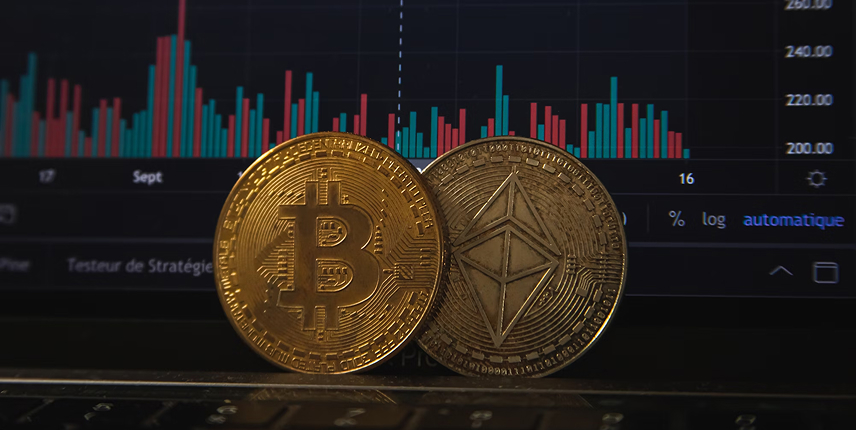When most people hear the word blockchain, their minds immediately jump to Bitcoin or Ethereum — the digital currencies that made the technology famous. But blockchain’s potential goes far beyond cryptocurrency. In fact, it’s quietly reshaping how organizations secure data, verify transactions, and build trust in an increasingly digital world.
Let’s dive into how blockchain is moving past its crypto origins to revolutionize data security and transparency across industries.
1. What Exactly Is Blockchain?
At its core, a blockchain is a decentralized digital ledger that records transactions across a distributed network of computers. Every transaction (or “block”) is timestamped, encrypted, and linked to the previous one — forming a chain that can’t easily be altered or deleted.
Unlike traditional databases controlled by a single entity, blockchain operates on consensus mechanisms. This means that once information is validated and added to the chain, it becomes almost impossible to tamper with without detection.
In simpler terms: imagine a shared Google Doc that everyone can view, but no one can erase or secretly change — that’s the essence of blockchain.
2. Beyond Crypto: The Real Power of Blockchain
While cryptocurrency was the first major use case for blockchain, the technology’s potential lies in its security, traceability, and transparency. These features make it ideal for industries that rely on trust, record-keeping, and data integrity.
Let’s look at a few areas where blockchain is making a huge impact:
3. Data Security and Privacy
One of blockchain’s most revolutionary promises is data protection. In traditional systems, sensitive data is stored on centralized servers, which can be hacked, altered, or even deleted. Blockchain changes that paradigm.
Immutable Data
Because each block is encrypted and linked to the previous one, once information is recorded, it can’t be modified without altering every subsequent block — something nearly impossible on a decentralized network. This ensures the integrity and authenticity of data over time.
Decentralization
Rather than relying on a single central database, blockchain spreads data across multiple nodes worldwide. That means there’s no single point of failure — and no easy target for cybercriminals.
Zero-Knowledge Proofs and Encryption
Advanced cryptographic methods, such as zero-knowledge proofs, allow one party to verify information without revealing the data itself. This adds a new level of privacy protection, especially in sectors like healthcare, finance, and identity management.
4. Supply Chain Transparency
Supply chains are complex systems involving manufacturers, suppliers, logistics providers, and retailers — often spread across different countries. Blockchain provides a way to track goods in real-time, verify authenticity, and ensure ethical sourcing.
Imagine being able to trace your morning coffee back to the exact farm where it was grown, or confirming that a diamond wasn’t mined under unethical conditions. Companies like IBM, Maersk, and De Beers are already using blockchain to make this a reality.
Real-World Example: IBM Food Trust
IBM’s Food Trust platform uses blockchain to trace food products from farm to table. It helps companies identify contamination sources in seconds — rather than days — and gives consumers unprecedented transparency about what they eat.
5. Healthcare: Securing Patient Data
The healthcare industry deals with incredibly sensitive personal data. Unfortunately, medical records are often fragmented across institutions or vulnerable to breaches. Blockchain offers a way to securely store and share patient data, ensuring privacy while allowing access to authorized professionals.
Benefits Include:
- Patient control: Individuals could own their medical data and grant or revoke access when needed.
- Data integrity: Every update is recorded permanently, creating a verifiable history.
- Efficiency: Blockchain reduces administrative costs and eliminates duplicate tests or paperwork.
Startups and healthcare providers are already testing blockchain-based systems to manage medical histories, prescription tracking, and insurance claims.
6. Digital Identity and Authentication
In a world where identity theft and data leaks are rampant, blockchain provides a way to establish secure, verifiable digital identities.
Instead of relying on centralized databases of personal information (which can be hacked), blockchain enables self-sovereign identity systems — where users control their data and share it selectively.
For example, you could prove you’re over 18 to buy a product online without revealing your exact birthdate or address. Governments and tech companies are exploring these systems to streamline everything from voting to passport control.
7. Smart Contracts: Trust Without Intermediaries
Another powerful innovation built on blockchain is the smart contract — a self-executing program that automatically enforces the terms of an agreement once conditions are met.
Smart contracts eliminate the need for middlemen such as banks, brokers, or notaries. They increase efficiency, reduce human error, and ensure fairness.
Example:
In real estate, a smart contract could automatically release payment to the seller once the buyer’s funds and property title are verified on the blockchain — no lawyers or escrow services required.
Industries from insurance to entertainment are already using smart contracts to automate royalties, trigger payments, or manage digital rights.
8. Government and Public Sector Applications
Governments are experimenting with blockchain to increase transparency and accountability. The technology can help combat corruption, improve record-keeping, and build citizen trust.
Some real-world examples include:
- Land Registries: Georgia and Sweden have used blockchain to record property ownership and reduce fraud.
- Voting Systems: Pilot projects in Estonia and the U.S. are exploring blockchain-based digital voting, ensuring tamper-proof election records.
- Public Spending: Transparent blockchain ledgers can show taxpayers exactly where government funds are going.
9. Blockchain for Business: Trust and Efficiency
For companies, blockchain is more than just a tech buzzword — it’s a way to streamline operations and build trust with customers and partners.
Businesses can use blockchain to:
- Verify supplier credentials
- Manage cross-border payments without high bank fees
- Authenticate luxury goods and digital assets
- Record audits and compliance data transparently
Even industries like media, logistics, and real estate are finding ways to integrate blockchain for traceability and fraud prevention.
10. The Environmental and Ethical Debate
While blockchain brings many advantages, it’s not without criticism. Some early blockchains — particularly proof-of-work systems like Bitcoin — consume vast amounts of energy.
However, newer models such as proof-of-stake (PoS) or layer-2 scaling solutions dramatically reduce energy consumption while maintaining security and decentralization.
The shift toward greener, more efficient blockchain networks is crucial for ensuring the technology’s long-term sustainability and social acceptance.
11. The Road Ahead: Integration and Adoption
Despite its potential, blockchain adoption faces several challenges:
- Scalability: Networks need to handle massive transaction volumes without slowing down.
- Interoperability: Different blockchains must communicate smoothly with one another.
- Regulation: Governments are still figuring out how to classify and manage blockchain-based systems.
- Education: Many decision-makers still see blockchain as synonymous with cryptocurrency.
Yet, as understanding grows and technology evolves, blockchain is steadily moving into the mainstream — powering solutions that have nothing to do with digital coins.
12. Conclusion: A Future Built on Trust
Blockchain started as the foundation for Bitcoin but has evolved into something far more powerful — a trust machine for the digital age.
From securing healthcare data to ensuring ethical supply chains and transparent governance, blockchain is rewriting the rules of how we share, verify, and protect information.
In a world where data breaches and misinformation have become everyday concerns, blockchain offers a refreshing alternative: a future where transparency and security are built into the system itself — not added as an afterthought.
So while cryptocurrencies may have sparked the fire, it’s blockchain’s broader applications that will keep reshaping the world for decades to come.


